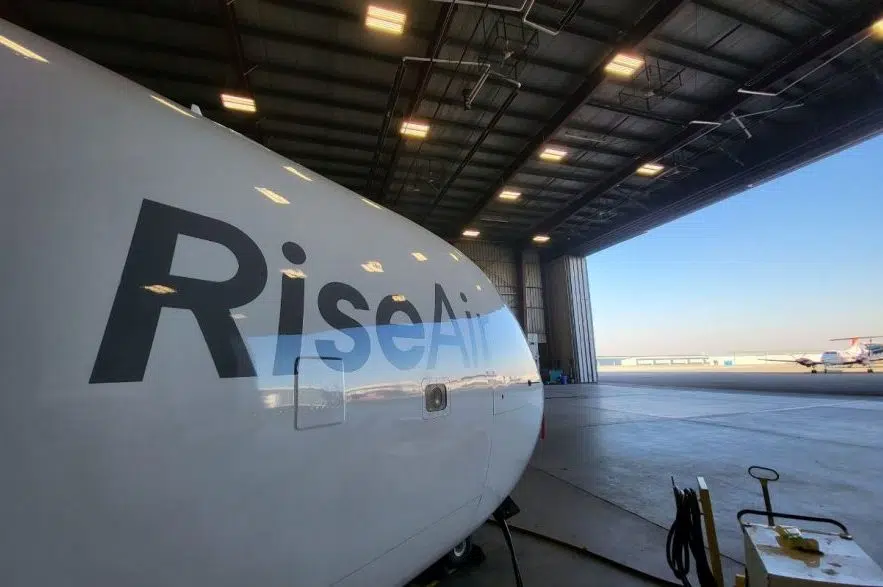On the heels of an announcement that one northern Saskatchewan charter flight company will be taking flight again, another charter airline is being forced to ground some of its services for the upcoming season.
While outfitters spent the winter months wondering whether Osprey Wings would be bought and continue its operations to the northern part of the province, Rise Air has announced to Saskatchewan outfitters that it will be unable to operate some of its aircraft this year.
Dan Gold, director of communications and stakeholder relations with Rise Air, clarified the company’s Beaver float plane will be the only float plane it flies this season. But it will operate seven days a week to offer “as much coverage as we are physically able to do.”
In a memorandum addressed to Saskatchewan outfitters and dated March 6, Rise Air president and CEO Derek Nice said a shortage of qualified pilots and changes to flight duty regulations mean the company won’t be able to operate its Twin Otter plane on floats for the 2023 season.
It will continue to operate its DHC-2 Beaver on floats throughout the summer, however, at the highest capacity possible.
“The reality is that with the shortage of qualified pilots, and the change in flight duty regulations we cannot operate Twin Otters on floats this season. We’re sorry. It’s frustrating to have aircraft ready to provide a service and no one available to operate them,” Nice wrote in the memorandum.
Rise Air provides scheduled service from Saskatoon to as far as Wollaston Lake and Uranium City. Its chartered flight service based out of La Ronge flies for customers throughout the province, according to the volume the business is able to accommodate.
Recruitment has been difficult, Gold explained.
“We’ve just been hit with a situation where we haven’t been able to recruit enough,” he said.
Despite months of extensive searching, Gold said Rise Air’s limited services are specifically because the company has not been able to find a qualified pilot to fly that aircraft.
It’s difficult to find pilots who can fly float planes and want to come to Saskatchewan, Gold said, especially given the small initial pool of qualified pilots available to recruit from in the first place.
Gold said all airline companies are in the same boat, trying to find people to captain their craft.
He added that Rise Air has been working on putting together compensation packages and is replacing its fleet as part of its efforts to attract qualified pilots to its service.
Gold said a decline has been seen in qualified pilots coming into the industry every year in Canada — from about 1,000 down to the 300 range now.
“That’s affecting the whole chain of people getting their hours as first officers and then moving into the captain’s seat,” Gold said, calling it a “significant complication for the entire industry.”
Harvey Kroll, owner and operator of Hatchet Lake Lodge and chair of the Saskatchewan Commission of Professional Outfitters, said he’s not surprised at the problems Rise Air is facing.
Kroll has been seeing them, too.
“I’ve got my own aircraft now but the time for pilots … has created a problem,” he said. “If you had one pilot flying your Single Otter last year, now you need two.”
That’s because new restrictions implemented by Transport Canada in December have limited the amount of time pilots can be in the air each day, requiring more manpower to complete the same amount of flying.
Kroll emphasized that the regulations have had an especially significant impact on small seasonal operators, like those in the float plane business serving northern Saskatchewan.
Even now that Osprey Wings has announced its sale and return for the 2023 season, Kroll said things are still up in the air, including whether Osprey itself will have enough pilots.
He called it a coin toss — having gone from not knowing whether Osprey would sell and clients turning to Rise Air to fill the gaps to Rise Air limiting its own service for the upcoming season.
“Now it’s flipped the other way,” Kroll said.
“The need for pilots and flying in Canada is increasing,” Gold said. “Yet at the same time, there’s a shortage … and then with this regulation change, while it’s understood, is not making it particularly easy at this time when there’s a shortage of supply of pilots in the first place.”
While Rise Air isn’t able to offer the full service it was hoping to this summer, Gold said the company is glad that Saskatchewan outfitters will still be able to receive service through other operations like Osprey Wings to reduce the impact many businesses in the province might otherwise face.







